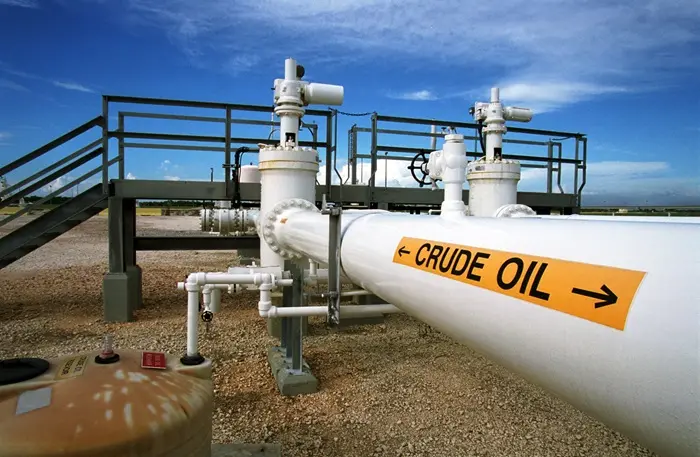Understanding the value of a barrel of crude oil is crucial for various sectors, including finance, energy, and global trade. The price of crude oil can significantly impact economies, industries, and everyday life. This article will explore the factors influencing crude oil prices, historical trends, and current valuation methods.
Introduction to Crude Oil Pricing
Crude oil is a fundamental commodity in the global economy. It serves as the basis for many energy products, including gasoline, diesel, and heating oil. The price of crude oil can fluctuate based on a range of factors, making it essential for investors, businesses, and governments to understand its valuation.
Historical Price Trends of Crude Oil
Early Historical Prices
Historically, crude oil prices were relatively stable before the 1970s. The discovery of large oil fields in the Middle East and advancements in extraction technology led to a significant increase in oil production. However, the 1970s marked a turning point with the onset of oil crises.
Oil Crises and Price Volatility
In the 1970s, the OPEC oil embargo led to dramatic price increases. The 1980s saw a drop in prices due to overproduction and geopolitical changes. The 2000s experienced another surge in prices, driven by increasing demand and geopolitical tensions.
Recent Trends
In recent years, oil prices have been highly volatile, influenced by factors such as geopolitical tensions, technological advancements in extraction methods, and global economic conditions. The COVID-19 pandemic further disrupted oil markets, leading to unprecedented price fluctuations.
See Also: What Does Crude Oil Look Like?
Factors Influencing Crude Oil Prices
Supply and Demand Dynamics
The fundamental principle of supply and demand plays a crucial role in determining crude oil prices. When demand exceeds supply, prices rise. Conversely, when supply surpasses demand, prices fall.
Geopolitical Events
Geopolitical events, such as conflicts in oil-producing regions or trade disputes, can significantly impact oil prices. For example, tensions in the Middle East often lead to concerns about supply disruptions, causing price spikes.
Economic Indicators
Economic indicators, such as GDP growth rates, unemployment levels, and industrial production, influence oil demand. Strong economic performance generally leads to higher oil consumption, driving up prices.
Technological Advancements
Advancements in extraction technologies, such as hydraulic fracturing (fracking) and deepwater drilling, have increased oil supply. These technologies have made it possible to access previously untapped reserves, impacting prices.
OPEC and Non-OPEC Policies
The Organization of the Petroleum Exporting Countries (OPEC) plays a significant role in regulating oil production to influence prices. OPEC’s decisions, along with those of non-OPEC producers, can affect global oil supply and, consequently, prices.
Environmental Policies
Environmental regulations and policies aimed at reducing carbon emissions can impact oil demand. The shift towards renewable energy sources and electric vehicles can reduce the reliance on crude oil, affecting its price.
Methods for Valuing Crude Oil
Benchmark Prices
Crude oil prices are often quoted based on benchmark crude oils, which serve as reference points for pricing. The two most widely recognized benchmarks are:
Brent Crude
Brent Crude is extracted from the North Sea and serves as a major benchmark for oil prices worldwide. It is used to price about two-thirds of the world’s traded crude oil.
West Texas Intermediate (WTI)
WTI is a benchmark for crude oil in the United States. It is sourced from Texas and other U.S. oil-producing regions. WTI is known for its light and sweet characteristics, making it suitable for refining into gasoline and diesel.
Spot and Futures Markets
Crude oil prices are determined in both spot and futures markets:
Spot Market
The spot market refers to the immediate purchase and sale of crude oil. Prices in the spot market are influenced by current supply and demand conditions.
Futures Market
The futures market involves contracts for the delivery of crude oil at a future date. Futures prices can reflect market expectations about future supply and demand conditions.
Price Differentials
Price differentials refer to the variations in crude oil prices based on factors such as quality, location, and transportation costs. For example, lighter and sweeter crudes typically command higher prices than heavier and sour crudes.
Current Price of Crude Oil
Recent Pricing Data
As of the latest data, crude oil prices have experienced fluctuations due to various factors. To provide accurate information, it is essential to check recent market data from reliable sources such as financial news outlets or commodity exchanges.
Impact of Recent Events
Recent events, including geopolitical developments, economic indicators, and technological advancements, continue to influence crude oil prices. Monitoring these factors can provide insights into current and future pricing trends.
Economic Impact of Crude Oil Prices
Effect on the Global Economy
Crude oil prices have a profound impact on the global economy. High oil prices can lead to increased production costs, inflation, and reduced consumer spending. Conversely, low oil prices can benefit consumers but may harm oil-producing economies.
Impact on Industries
Industries reliant on crude oil, such as transportation and manufacturing, are directly affected by price changes. Fluctuations in oil prices can impact operational costs and profitability.
Influence on Financial Markets
Oil prices also influence financial markets. Changes in oil prices can affect stock markets, commodity prices, and currency values. Investors often monitor oil prices as part of their decision-making process.
Conclusion
The value of a barrel of crude oil is determined by a complex interplay of factors, including supply and demand dynamics, geopolitical events, and technological advancements. Understanding these factors and how they influence pricing can provide valuable insights for investors, businesses, and policymakers.
Crude oil prices are not static and can change rapidly based on global events and market conditions. Keeping informed about these factors is essential for making informed decisions in the energy and financial sectors.
[inline_related_posts title=”You Might Be Interested In” title_align=”left” style=”list” number=”3″ align=”none” ids=”3426,3462,3506″ by=”categories” orderby=”rand” order=”DESC” hide_thumb=”no” thumb_right=”no” views=”no” date=”yes” grid_columns=”2″ post_type=”” tax=””]
































